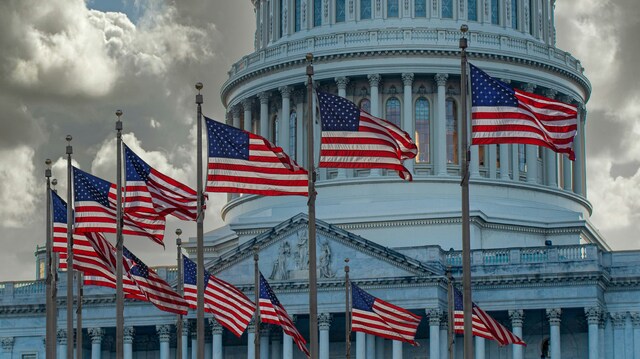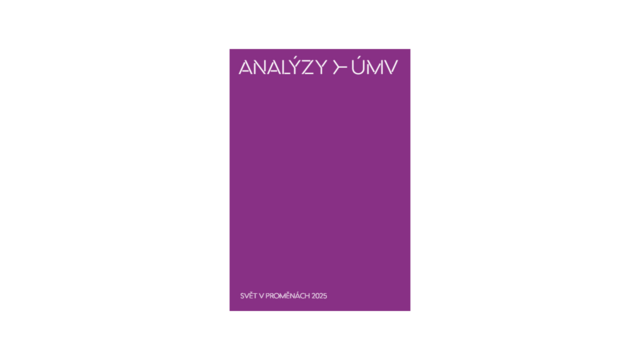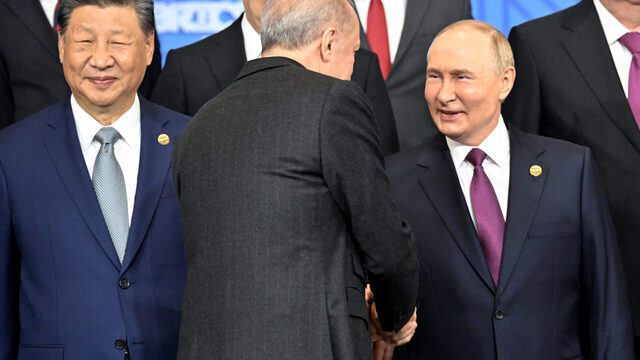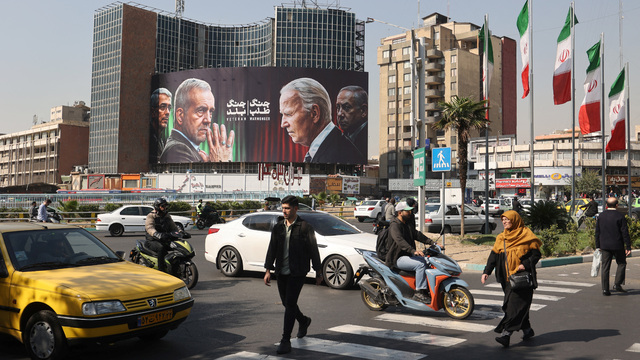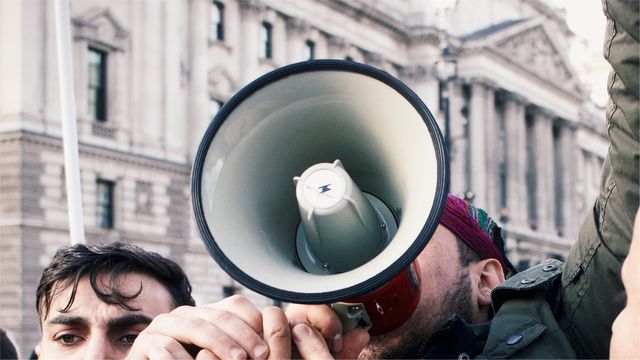The US Withdraws From The UN Human Rights Council
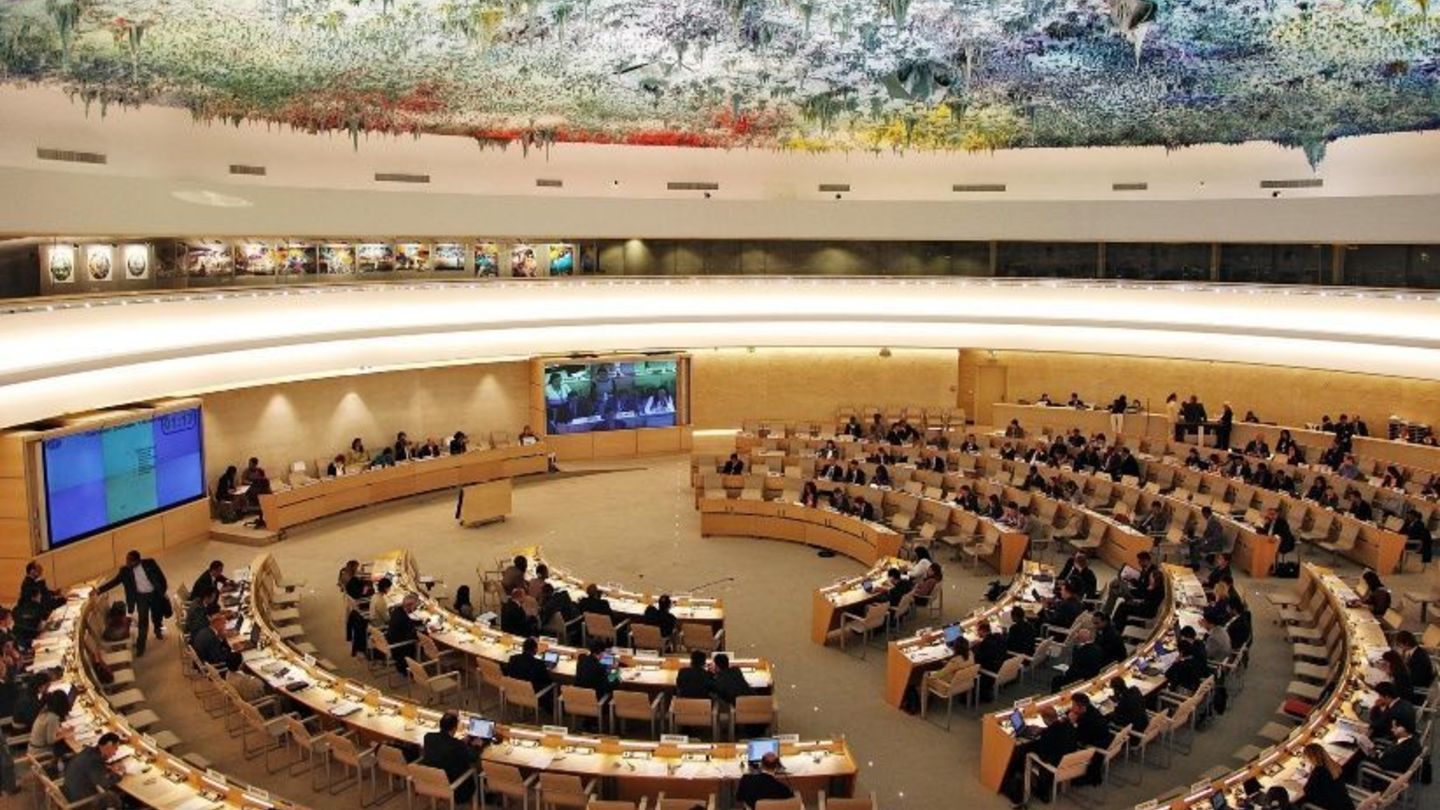
paper
In mid-June 2018, the US announced its withdrawal from the UN Human Rights Council. It sat in the Council for the third time since the establishment of the organ in 2006. This time, however, it left its three-year mandate (2017–2019) unfinished. The paper analyses the four main arguments that the US put forward to justify its withdrawal from the Council. It shows that while some of the arguments have some merit, none is truly convincing. The paper also warns against any re-assessment of the current Czech candidacy to the Council.
In mid-June 2018, the US announced its withdrawal from the UN Human Rights Council. It sat in the Council for the third time since the establishment of the organ in 2006. This time, however, it left its three-year mandate (2017–2019) unfinished. The paper analyses the four main arguments that the US put forward to justify its withdrawal from the Council. It shows that while some of the arguments have some merit, none is truly convincing. The paper also warns against any re-assessment of the current Czech candidacy to the Council.
THE US WITHDRAWS FROM THE UN HUMAN RIGHTS COUNCIL
In mid-June 2018, the US announced its withdrawal from the United Nations Human Rights Council. It sat in the Council for the third time since the establishment of the organ in 2006. This time, however, it left its three-year mandate (2017–2019) unfinished. Which arguments did the US use to justify its decision? Are these arguments relevant and well-founded? And what implications does the US withdrawal has for the Czech Republic, which currently runs a campaign for its re-election to the Council for 2019–2021?
1) The US in the UN Human Rights Council
The UN Human Rights Council is the main UN human rights body. It was created in 2006, when it replaced the UN Commission on Human Rights. The Commission was established in 1946 and was long criticized for its politicization and lack of efficiency. The Council is smaller than the Commission (47 members; the Commission had 53), it meets more often (three times a year; the Commission used to meet twice a year), it has the power to suspend the membership of states engaging in gross violations of human rights, and it has a stronger mandate (e.g. it focuses on human rights in all countries of the world, not only in some of them). On the other hand, the Council is similar to the Commission in that it is a political body, i.e. it consists of states, not of experts. That makes these two organs different from treaty committees, such as the UN Human Rights Committee, which have expert membership. This is compensated by a narrower mandate, with each committee monitoring the implementation of only one specific human rights convention (e.g. UN Human Rights Committee monitors the implementation of the 1966 International Covenant on Civil and Political Rights).
The US approach towards the UN Human Rights Council has gone through several stages. The main milestones are marked by the changes of the US presidential administrations. The US was one of the loudest critics of the Commission on Human Rights and one of the strongest supporters of its reform. The compromise version of the reform agreed upon in 2006 did not, however, meet its expectations. The US thus decided to vote, together with only three other countries, against the UN Security Council Resolution 60/251 establishing the Council (the others voting against it were Israel, the Marshall Islands, and Palau; Belarus and Venezuela abstained; all the other countries, including the Czech Republic, voted for the resolution). John Bolton, the then US Ambassador to the UN, explained¹ the US stance by pointing to the absence in the resolution of “stronger mechanisms for maintaining credible membership (in the Council)”. During the first three years of the Councilʼs existence, the US largely ignored its activities.
The situation changed with the arrival of the administration of President Obama in 2009. In spring 2009, the US ran, for the first time, for a seat in the Council, and it got the seat, with 167 votes in favor of it (the US got the same number of votes as China, Cuba had 163 votes, and Saudi Arabia 154 votes). The first US mandate terminated in 2012 but the US immediately ran for a re-election and was again successful, although this time with only 131 votes (this was still the best result in the Western European and Others Group). Thus, the US was a member of the Council for the two subsequent terms (2009–2015). Since it is not allowed to serve in the Council for more than two subsequent terms, the US had to take a short break in 2015. It nonetheless announced a new candidacy already in 2016, and in October of that year, it was elected with its best result so far (175 votes). This time, however, the membership did not last long. In mid-June 2018, after more or less half of its third mandate, the US – as the first country in history – withdrew from the Council. What were the reasons behind this unprecedented step?
2) Why did the US withdraw from the UN Human Rights Council?
The US justified the decision to withdraw from the Council with four main arguments. The first pertains to the composition of the Council. The second is related to the Councilʼs alleged lack of efficiency. The third consists of pointing to the alleged anti-Israeli bias of the Council. The fourth relates to the US sovereignty. The first three arguments are invoked in the official statement² on the US withdrawal made by the US Secretary of State Mike Pompeo and the current US Ambassador to the UN Nikki Haley. The fourth argument is put forward³ by John Bolton, who is now the National Security Advisor. Letʼs have a closer look at each of the four arguments.
3) There are notorious human rights violators among the Council members
Doubts as to the ability of the Council to ensure that there are no notorious human rights violators among its members have been voiced by the US since the creation of the Council in 2006. These doubts, as we saw, made the US vote against the creation of the Council. The argument has been coming back regularly. It has become especially frequently voiced since the election of President Trump. Trump himself pointed out in his 2017 address to the General Assembly⁴ that it is embarrassing that “some governments with egregious human rights records sit on the UN Human Rights Council”. Pompeo and Haley also invoke the problematic memberships of some countries in the Council in their statement.
It is true that over the years, the Council has had among its members some states with a problematic human rights record, such as Burundi, China, the Democratic Republic of the Congo, Cuba, Saudi Arabia or Venezuela. Resolution 60/251, which created the Council, urges states to take into account “the contribution of candidates to the promotion and protection of human rights” (par. 8). Yet, political interests are also at stake during the elections and they sometimes prevail. The possibility to suspend the membership of states that seriously and systematically violate human rights, also foreseen in the Resolution, has not been widely used either. So far, it has been utilized in practice only once – in the case of Libya in 2011 (during the civil war).
All these factors seem to give credit to the US position. It is, however, important to stress that although there are notorious human rights violators in the Council, they only constitute a minority there. According to the Freedom Index, which measures the state of democracy and human rights in individual countries, around half of the Council members have always been in the “free” category. Another quarter of them are currently in the “partly free” category. It may be argued that members of the last category – “not free” – should not be present in the Council at all. This is, however, difficult to achieve in a body which is composed of states and where the voting, which, moreover, is secret, is strongly influenced by political considerations. Also, the decision on who the notorious human rights violators are is, in fact, not completely apolitical either.
Furthermore, it is important to consider the impact that the membership of several problematic states has on the performance of the Council. In the Commission on Human Rights, members had the possibility to shield themselves and their allies from human rights reviews and criticism. In the Council, this is no longer possible. Due to a new instrument, the Universal Periodic Review (UPR), all countries are subject to such reviews every 4-5 years now. A minority, moreover, is unable to block the decisions of the majority, e.g. in cases of adopting a resolution or creating an inquiry commission. Thus, the membership of several problematic states might harm the Council’s reputation, but it does not have a significant impact on its work.
4) The Council lacks efficiency and does not enhance human rights protection
The second argument on which the US based its decision to leave the Council consists of the alleged inefficiency of this body. In Haleyʼs words, the Council is “a hypocritical and self-serving organization that makes a mockery of human rights”. Pompeo considers that “the only thing worse than a council that does almost nothing to protect human rights is a council that covers for human rights abuses and is therefore an obstacle to progress and an impediment to change”. For Bolton the Council is “a toothless debating society with no impact outside Geneva” (where it has its seat).
It is possible to agree that the Council has not completely fulfilled the expectations raised by its creation in 2006. It has not turned out to be a body that would flexibly and quickly react to serious human rights violations committed anywhere in the world, let alone one that could stop those violations. One may wonder, however, whether those expectations, taking into account the political character of the Council and its relatively limited mandate, were realistic.
Somewhat surprising in this sense is the alternative platform to the Council that Haley proposes and where, in her view, the US could move the human rights agenda. It is the UN Security Council. When compared to the Human Rights Council, the Security Council surely has a stronger mandate: it can impose sanctions on states that constitute a threat to peace and security, including those engaging in serious violations of human rights. It can also, eventually, authorize the use of force against such states. Yet, it can hardly be argued that the Security Council has used its mandate more often or with less bias than the Council. For a country with veto power in the Security Council, but not in the Human Rights Council, the move to the former body may be logical. The potential of this move to help enhance the protection of human rights in the world is, however, questionable.
The performance of the Human Rights Council is, moreover, not as mediocre as the statements by the US politicians would have us believe. The third cycle of the Universal Periodic Review is currently taking place at the Council, and up until the present, all the member countries with only one exception (Israel in 2013) have been involved in it. The level of implementation of the UPR recommendations differs from one country to another but the mere fact that there is now, for the first time in history, a human rights instrument to which all countries are subject on a regular basis is an important achievement.
Furthermore, the Council can decide to pay more attention to states where particularly serious human rights violations take place. It can, within the limits of its mandate, hold extraordinary meetings, express criticism in country-specific resolutions and establish an inquiry commission to investigate and document violations of human rights. Besides the controversial case of Israel (see the next section), the Council has paid special attention to the Democratic Republic of Congo, the DPRK, Myanmar, Sri Lanka, the Sudan and Syria in this regard. In some of these cases, the US has been quite instrumental in bringing the situation in the given country to the Councilʼs agenda. The US has also promoted new topics in the Council which were not previously discussed there because of a lack of political will, such as the rights of sexual minorities (LGBT).
The claim that the Council ignores human rights problems or that it even covers up some of them intentionally is thus, at the very least, strongly exaggerated. The Council surely has its limits, stemming from its composition and mandate. This, however, does not mean that without it or outside it, human rights could be protected better and more easily than with it and within it.
5) The Council has an anti-Israeli bias
The third argument for the withdrawal from the Council, according to Pompeo and Haley, is “[the Council’s] [c]hronic anti-Israel bias”. This argument is not without merit either. Since the creation of the Council, its long-term agenda has included Item 7, entitled Human rights situation in Palestine and other occupied Arab territories. It is the only agenda item which deals with a specific country. The human rights situations in all other countries are discussed Item 4 – Human rights situations that require the Council’s attention. There have been over 80 resolutions adopted under Item 7. This is approximately the same number as that of the resolutions adopted for all other countries.
Israel has also been the object of 8 out of 28 extraordinary sessions of the Council and of 7 out of 27 inquiry commissions or other expert bodies created by the Council. Israel certainly has its human rights problems, which, moreover, due to its long-lasting occupation of the Palestinian and other territories have a trans-boundary character. The focus on Israel in the Council and in some other bodies, such as the UN General Assembly, can also to some extent compensate for the factual immunity that Israel enjoys in other bodies, typically in the Security Council. Neither of those factors, however, are specific to Israel.
The attention paid to Israel by the Council, while not completely undeserved, is therefore exaggerated and disproportionate. The situation has nevertheless been changing over time. Item 7 remains in the agenda and there are resolutions (with a standard text) regularly adopted under it. Yet, the Council has increased its interest in the human rights situations in other countries. Since 2016, moreover, several states have started to boycott Item 7; i.e. they have not attended the related debates, they have not taken the floor in them and they have also desisted from voting on the standard resolutions. Their ambition is to get the support of other countries for this cause and to finally have Item 7 removed from the Agenda. The US has played a crucial role in this respect during its two terms at the Council, and its voice will be missed now. Thus, although the US withdrawal may seem as a triumph of the Israeli foreign policy and also of the pro-Israeli lobby in the US, it is rather the opponents of Israel who should rejoice, as their position will now get stronger again.
6) Membership in the Council is at odds with the US sovereignty
The last argument, which is used especially by Bolton, is connected to the US sovereignty. The US withdrawal is, according to Bolton, “a rejection of the notion that multilateral organizations are in a position to judge representative governments like the US, or to try and impose their view of what an adequate human rights performance is”. The Council is, allegedly, part of a broader effort to “whittle away at what the constitution gives us, and supersede the sovereignty we enjoy with a kind of supra-national framework”. This opinion is neither new nor surprising. The US has regularly relied on it in the debates on the binding force of international law and on the role of international institutions, stressing that it is up to its people to decide about its domestic affairs, following the rules enshrined in the national constitution (see here).
Such an approach, however, is double-edged. If one state should be free from international obligations because of its sovereignty, why then should the other states be subject to these obligations? Arguing that only states where people truly rule through representative governments, should have right to invoke sovereignty is not really useful either, both because most states today legitimize their existence by “the will of the people” and because even established democracies can violate human rights, and these violations could be serious and far-reaching.
7) Other arguments for leaving the Council?
Bolton’s text is interesting in that it suggests two more factors which could have played a role in the US decision to leave the Council, though they are not mentioned in the official statement. The first, more personal factor pertains to the attempts by President Trump to undo the steps taken by his predecessor Barack Obama. In addition to the withdrawal from the Council, these attempts are visible, e.g., in the US withdrawals from the Iran nuclear deal and the Transpacific Partnership as well as in the US’s critical stance with respect to the Paris Agreement on Climate Change.
The second, more general factor consists of the rejection of the worldview that was held, and to some extent personified, by Obama. Bolton connects this worldview to the belief that states are equal and disputes among them should be settled in a multilateral way. Trump, in Boltonʼs view, rightly rejects this belief. He assumes that some states are more important than others and it should be up to them to take decisions on behalf of the international community as a whole. The first among those states is the US. Here Bolton uses the metaphor of a Gulliver (the US) who let himself be chained by other, possibly lesser beings (by becoming a member of the Council alongside other states). But now, the giant has broken his chains and thrown them away and can fully realize his potential on his own, as the American exceptionalism gives him the right to do so.
This argument suffers from the same shortcomings as the appeal to sovereignty. That is probably why this argument has mostly been invoked in texts addressed to the US domestic audience. Yet, as we have seen, the arguments made at the international level are not fully convincing either. As Daniel Chardell and Theresa Lou from the Council for Foreign Relations wrote already three years ago, “the lessons of the previous […] years [show that] on the whole, the HRC performs best when the United States participates, not when it sits on the sidelines”. The same applies the other way round in the sense that as a Council member, the US has better opportunities to influence the international human rights agenda than as a state which has intentionally distanced itself from the Council.
WHAT DOES THE US WITHDRAWAL FROM THE COUNCIL MEAN FOR THE CZECH REPUBLIC?
Let us conclude by briefly considering what the US withdrawal from the Council means for the Czech Republic. The Czech Republic ranks the support for international human rights mechanisms, especially the Human Rights Council, among the long-term thematic priorities of its human rights foreign policy. The country was among the active supporters of the reform of the UN human rights system and it voted for the creation of the Council in 2006. It then became one of the first members of the Council, although its mandate lasted only a couple of months (in 2006). It held its second term in the Council in 2011–2014. Now, the Czech Republic is running for its third term, which would last from 2019 to 2021.
Due to the role that the transatlantic link plays in the Czech foreign policy, the US withdrawal from the Council could reopen the debate about the Czech candidacy to the Council. That would be unfortunate. The Czech Republic, although not uncritical of the Council’s activities, belongs among its long-term supporters. A sudden change in this respect would endanger the credibility and coherence of the Czech foreign policy. The Czech Republic, moreover, does not have at its disposal any alternative platforms such as the Security Council, where it could seek to promote the human rights agenda. And due to its size, it can hardly reject the multilateral tools and rely only on unilateral ones. In fact, only time will tell whether even the US can allow itself to do so.
The US withdrawal from the Council should thus not result in the abandonment of the Czech candidacy. Quite the contrary. It makes this candidacy even more important. The Council now needs active members which would help it cope with the challenge of the US withdrawal. Without such members, it might indeed turn into a debating society with no real authority. At the same time, it is vital to keep the achievements that the US has pushed through in the Council and that some states might now try to do away with (the new topics on the agenda, the higher attention paid to states grossly violating human rights, etc.). The Czech Republic can play a crucial role in both of these areas. It is therefore important for it to continue in its candidacy and to do so in a way that would result in its being elected for a third term in the Council.
